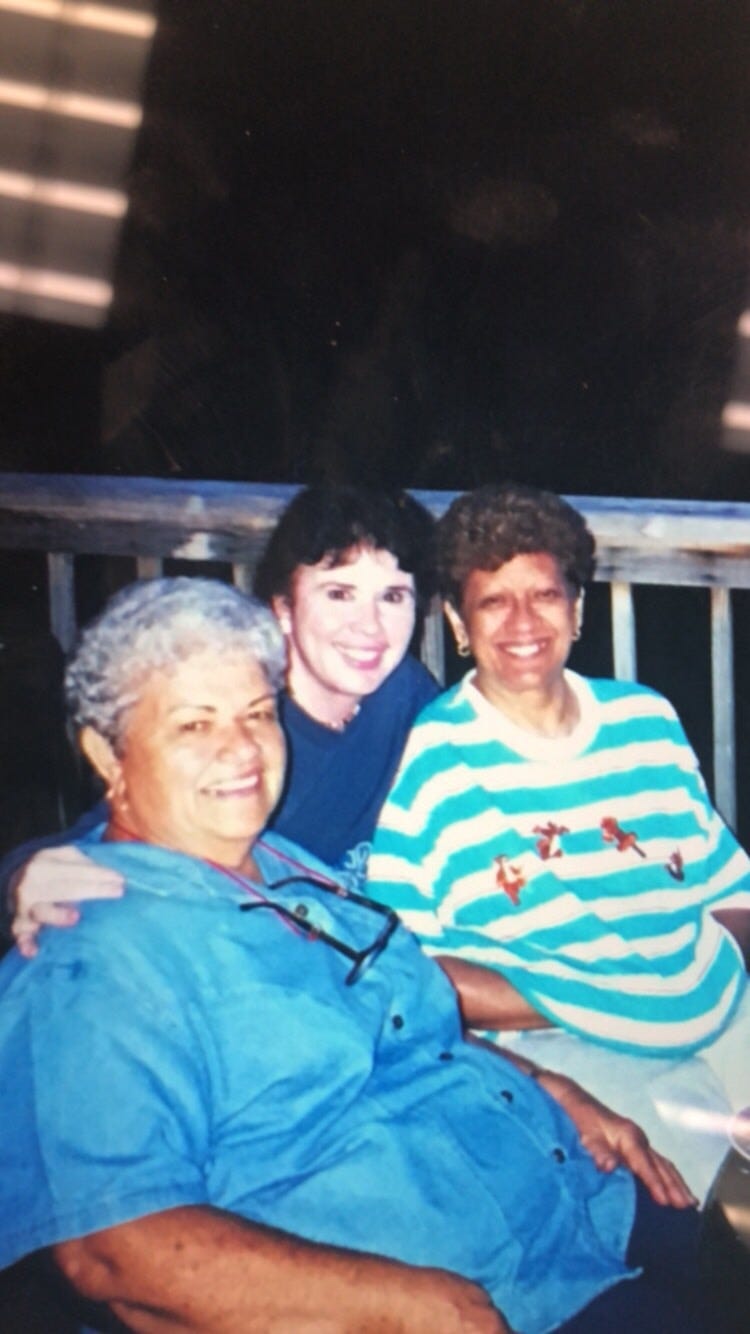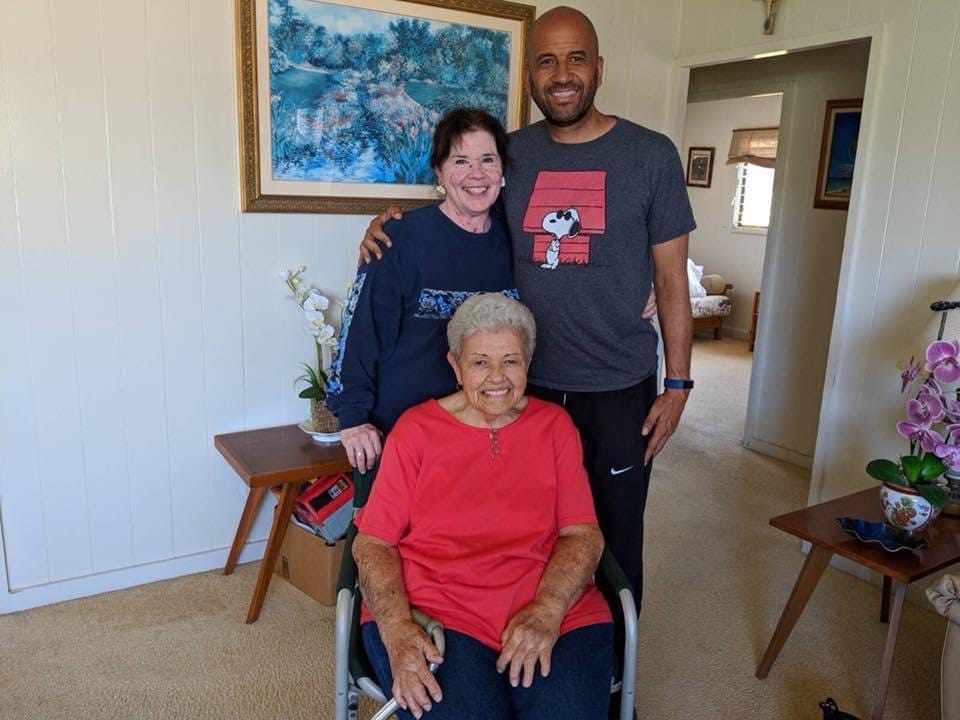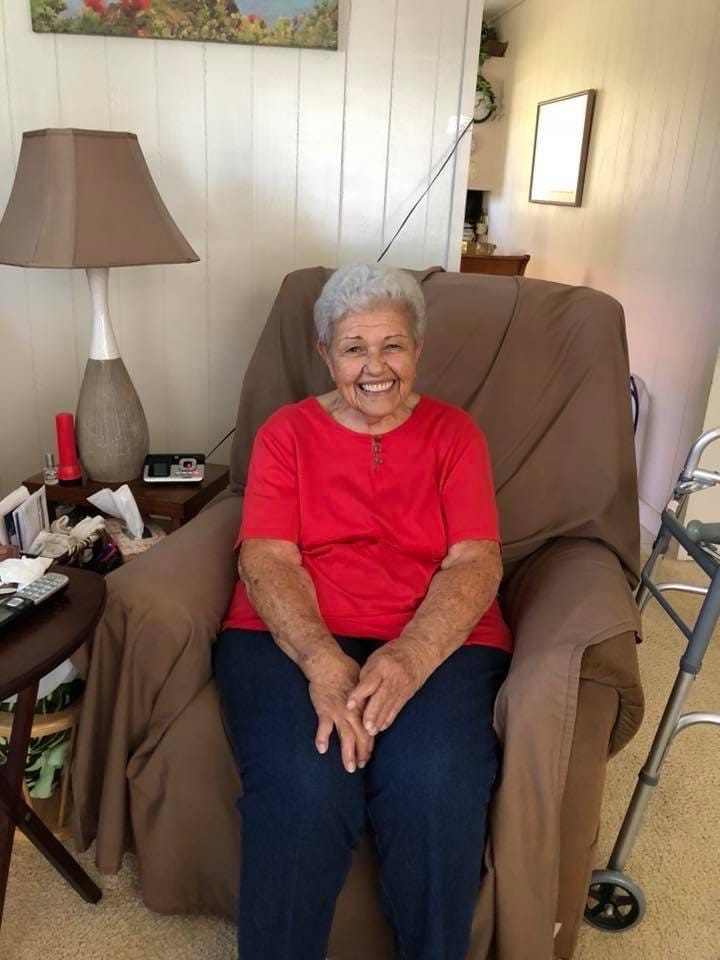Remembering Pearl Harbor through the eyes of my family
On the 80th anniversary of the attacks, I would like to remember my late Aunt Betty and her accounts of events that unfolded
Growing up as a child and having Hawaiian roots, through my grandmother, it was never that far of a leap to assume that she and her family had been affected by the Pearl Harbor attacks. But it wasn’t until middle school that I would begin to investigate this question.
At Glenfield Middle School in Montclair, New Jersey, we had received a series of assignments in Mr. McCarthy’s social studies class which were centered around interviewing members of your family about major events in American history. The idea was to give the students a sense of place within history, to not just see it as boring chapters in textbooks, but lived experiences that impact the lives of everyday people. To see history through the lens of your family makes it more personal as the events come to life through the stories.
Upon receiving the section of the assignment about the Pearl Harbor attack, I was eager to call my grandmother to ask her about her memories, but after speaking with her, it became clear that she was too young to recall the events, only being around 5 years old at the time of the attacks. My parents suggested that I instead call my Aunt Betty, my grandmother’s older sister, who was eleven at the time of the attacks, and who still lived in Hawaii.
Hawaii for me was never distant, despite never having visited mainly thanks to my mother, who tried to keep regular contact with Aunt Betty’s daughter, Laurene, my father’s cousin. She had always exchanged letters and packages with them and some of my earliest memories of living in Jersey City were receiving packages with foods and sweets, books about Hawaii, photos, and calendars.
My experience of Hawaiian culture and my interest to this day was shaped by these early connections. So when my parents gave me the number to call Aunt Betty, it didn’t have the feeling of contacting a very distant relative. It was as if I were journeying deeper into a connection, despite the distance.
In my interview with Aunt Betty, I was treated to vivid descriptions of the moment the attacks began as well as its aftermath. She described seeing the Zero fighter planes flying so low to the ground that they were clipping palm trees. She could read the Japanese writings and symbols on the sides of the planes. Pandemonium quickly spread as she tried to make her way home, where her and her other siblings would eventually be sent to a bomb shelter to wait the attacks out.
What I found most shocking at the time, and still resonates with me today, is her descriptions of civilian life during a state of war. This is something very few Americans have experienced since the Second World War. Gas masks were mandatory for public access, and children were not allowed at school without them. The lack of gas mask at school could incur a fine. At the time, there were fears that the Japanese fleet could return and overrun the islands, making the threat of the use of chemical and biological weapons very real. Eventually though schools would be closed for over a month as the need for first aid stations grew.
Resources were scarce and being responsible for not only herself, but also her younger siblings, Aunt Betty had to learn the basics of first aid as well, such as how to properly tie cloth bandages. Food was rationed depending upon the size of the household. Milk and grains such as bread and rice were hard to come by. Her family would instead make their own bread, butter, and mayonnaise, and relied upon the vegetables they grew in their garden to supplement the rationing. This state of war in Hawaii lasted for over a year, before any semblance of normal civilian life would return.
Just as the September 11th, attacks had done for me as a child, the attacks on Pearl Harbor were an eyeopening experience to the dissonance between how the United States portrayed itself and how it was perceived externally. To have war, something that is always distant, and always happens elsewhere, become a tangible reality was a massive shock to her understanding of the world. One of the major consequences in the immediate aftermath of the attacks, just as my mother remembers with the World Trade Center attacks, was a greater reliance upon the community and those around. Aunt Betty was tasked with taking care of the children in the family, which included my grandmother. Many people volunteered for the Red Cross and worked in military hospitals to treated the wounded. Scrap metal was donated in drives to help the war effort, and children could buy stamps at school to help pay for military supplies in the Pacific war.
Hearing these stories of our family experience of Pearl Harbor was something I found extremely exciting, having a major interest in history, and was something I was very proud to share with my classmates. Looking back on my interview with her today brought back a lot of that excitement from the moments Aunt Betty was recounting her stories. With news of Aunt Betty’s passing a month ago, I would like to take the time today to honor her as well as my grandmother Joyce Guess.







Beautifully written!
I loved the passion you put into this piece as a child …I too had an Aunt Betty…she worked at factory in CHICAGO for the war …ciao to all our Aunt Bettys